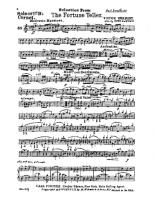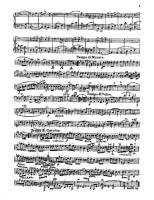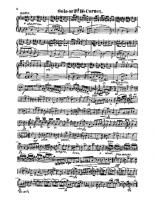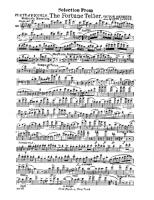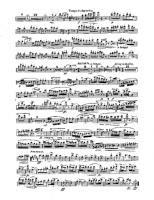Victor Herbert Sheet Music
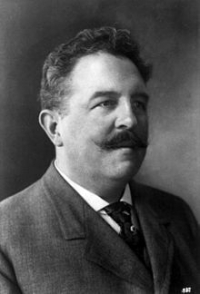 Victor August Herbert (February 1, 1859 – May 26, 1924) was an Irish-born, German-raised American composer, cellist and conductor. Although Herbert enjoyed important careers as a cello soloist and conductor, he is best known for composing many successful operettas that premiered on Broadway from the 1890s to World War I. He was also prominent among the tin pan alley composers and was later a founder of the American Society of Composers, Authors, and Publishers (ASCAP). A prolific composer, Herbert produced two operas, a cantata, 43 operettas, incidental music to 10 plays, 31 compositions for orchestra, nine band compositions, nine cello compositions, five violin compositions with piano or orchestra, 22 piano compositions and numerous songs, choral compositions and orchestrations of works by other composers, among other music.
Victor August Herbert (February 1, 1859 – May 26, 1924) was an Irish-born, German-raised American composer, cellist and conductor. Although Herbert enjoyed important careers as a cello soloist and conductor, he is best known for composing many successful operettas that premiered on Broadway from the 1890s to World War I. He was also prominent among the tin pan alley composers and was later a founder of the American Society of Composers, Authors, and Publishers (ASCAP). A prolific composer, Herbert produced two operas, a cantata, 43 operettas, incidental music to 10 plays, 31 compositions for orchestra, nine band compositions, nine cello compositions, five violin compositions with piano or orchestra, 22 piano compositions and numerous songs, choral compositions and orchestrations of works by other composers, among other music.In the early 1880s, Herbert began a career as a cellist in Vienna, Austria, and Stuttgart, Germany, during which he began to compose orchestral music. Herbert and his opera singer wife, Therese Förster, moved to the U.S. in 1886 when both were engaged by the Metropolitan Opera. In the U.S., Herbert continued his performing career, while also teaching at the National Conservatory of Music, conducting and composing. His most notable instrumental compositions were his Cello Concerto No. 2 in E minor, Op. 30 (1894), which entered the standard repertoire, and his Auditorium Festival March (1901). He led the Pittsburgh Symphony from 1898 to 1904 and then founded the Victor Herbert Orchestra, which he conducted throughout the rest of his life.
Herbert began to compose operettas in 1894, producing several successes, including The Serenade (1897) and The Fortune Teller (1898). Even more successful were some of the operettas that he wrote after the turn of the 20th century: Babes in Toyland (1903), Mlle. Modiste (1905), The Red Mill (1906), Naughty Marietta (1910), Sweethearts (1913) and Eileen (1917). After World War I, with the change of popular musical tastes, Herbert began to compose musicals and contributed music to other composers' shows. While some of these were well-received, he never again achieved the level of success that he had enjoyed with his most popular operettas.
Piano
8
pages
6.88MB - 531d ago
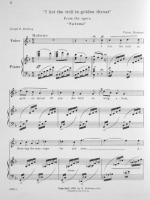
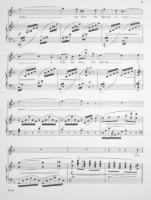
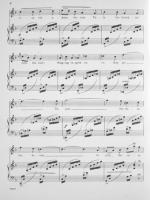
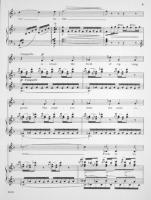
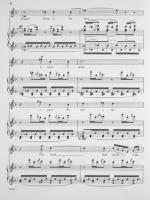
...
Piano
6
pages
2.4MB - 393d ago
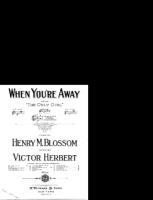
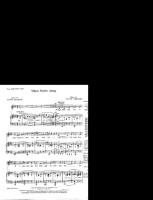
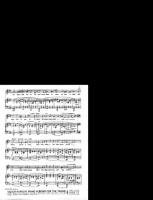
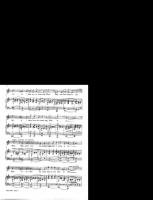
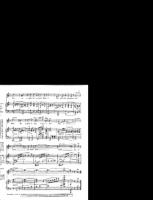
...
Search for Free Sheet Music
You can make a search through the entire collection of sheets.
You can make a search through the entire collection of sheets.
Latest Artists
Bob Watson
× 1
Hannes Ruch × 1
Alexis Jordan × 1
Marie line riviere × 1
Scott Wesley × 1
Rent (Musical) × 1
Mark Mueller × 1
Bonnie Raitt × 1
KARA × 1
Beethoven × 5
Jean Sibelius × 2
Nino Rota × 1
Scott Alan × 2
Chihiro Yonekura × 1
Yann Tiersen × 8
Johann Strauss × 1
Sixpence None the Richer × 1
UB 40 × 1
Sofia Rotaru × 1
Elaine Deasy × 1
Enrique Iglesias × 1
John Bucchino × 1
Norman A. Agatep × 1
John Hughes × 1
Frank Bridge × 1
David Bonnin × 1
Mozart × 8
Britney Spears × 1
Hans Zimmer × 2
Antonin Dvorak × 1
Shenmue × 1
Astor Piazolla × 1
Tchaikovsky × 1
Saverio Mercadante × 1
Annie Lennox × 1
Jo Privat × 1
Jazz Holiday Classic × 1
Bellini × 1
Adolf von Henselt × 1
Thomas Elgar Sugar × 1
Valter Bresolin × 1
Jack Johnson × 1
Johann Jakob Froberger × 1
Marvin Hamlisch × 1
Bright Eyes × 1
M.Biskupska × 1
Kunihiko Ryo × 1
The Secret Garden × 2
Beauty and the Beast × 1
Martin Solveig × 1
Hannes Ruch × 1
Alexis Jordan × 1
Marie line riviere × 1
Scott Wesley × 1
Rent (Musical) × 1
Mark Mueller × 1
Bonnie Raitt × 1
KARA × 1
Beethoven × 5
Jean Sibelius × 2
Nino Rota × 1
Scott Alan × 2
Chihiro Yonekura × 1
Yann Tiersen × 8
Johann Strauss × 1
Sixpence None the Richer × 1
UB 40 × 1
Sofia Rotaru × 1
Elaine Deasy × 1
Enrique Iglesias × 1
John Bucchino × 1
Norman A. Agatep × 1
John Hughes × 1
Frank Bridge × 1
David Bonnin × 1
Mozart × 8
Britney Spears × 1
Hans Zimmer × 2
Antonin Dvorak × 1
Shenmue × 1
Astor Piazolla × 1
Tchaikovsky × 1
Saverio Mercadante × 1
Annie Lennox × 1
Jo Privat × 1
Jazz Holiday Classic × 1
Bellini × 1
Adolf von Henselt × 1
Thomas Elgar Sugar × 1
Valter Bresolin × 1
Jack Johnson × 1
Johann Jakob Froberger × 1
Marvin Hamlisch × 1
Bright Eyes × 1
M.Biskupska × 1
Kunihiko Ryo × 1
The Secret Garden × 2
Beauty and the Beast × 1
Martin Solveig × 1






